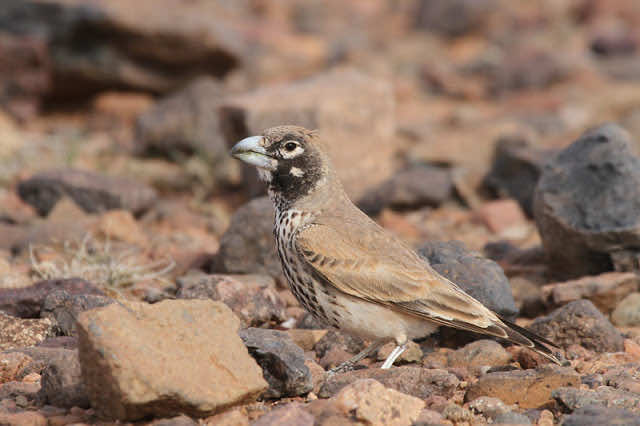![Prime Minister Netanyahu welcomed the law, saying any peace deal 'demands a broad national agreement' [AFP]]()
By Nouh Anajjar
Nador, Morocco - The Arab Center for Research and Policy Studies in Doha, Qatar, announced on September 24th the results of the Arab Index for 2014, a survey carried out in 14 Arab countries to gauge public opinion on various topics.
The countries included in the survey were Yemen, Saudi Arabia, Kuwait, Iraq, Palestine, Jordan, Algeria, Egypt, Tunisia, Sudan, Lebanon, Morocco, Mauritania, and Libya. The survey also included the views of Syrian refugees in Turkey, Lebanon, and Jordan inside Syrian territory bordering Turkey.
The field poll, considered byDr. Mohammed al-Masri, the coordinator of the Public Opinion Unit of the Arab Center to be the largest survey of public opinion in the Arab region and therefore an important source of data for decision-makers, researchers and those interested in the affairs of the Arab region, was carried out between January and July, 2014, and surveyed 26,618 interviewed respondents with a margin of error ranging from 2 to 3%.
The results of the survey this year revealed a split in public opinion on the Arab Spring: Only 45% of respondents considered the Arab revolutions to be positive developments in the Arab region, whereas 42% expressed a negative assessment of the Arab Spring. The 42% who considered the Arab revolutions to be negative supported their view by citing the huge number of human casualties, the failure to achieve the intended objectives, and the deterioration of economic conditions since those events. Interestingly enough, while the notion had been prevalent previously, only 5% of the respondents maintained that the Arab Spring had been a foreign conspiracy.
Notwithstanding the split in public opinion on the merits of the Arab revolutions, Arabs are generally still optimistic about the Arab Spring and have confidence in its eventual positive fruits. The majority of the public (estimated at 60%) said they believe that the Arab Spring is undergoing a tumble, but that it will ultimately achieve its objectives, and only 17% of the respondents said they thought that the Arab Spring has resulted merely in the reappearance of previous systems of governance. In fact, many citizens of the Arab region said that they believe that the deterioration of security in some countries, the decline of economic conditions, some external interference, the emergence of extremist movements, as well as the incitement caused by media, to be major factors that have contributed to the faltering of the Arab Spring.
At the economic level, the survey indicates that the economic condition of the citizens of the Arab region is not satisfactory at all. 42% said that their incomes cover no more than the expenses of their everyday needs, and thus they cannot save money. 32% reported that their families live in poverty insofar as their incomes do not fully cover all their living expenses.
As for Arab national security, 66% reported that Israel and the United States are the most menacing countries to Arab national security, while only 9% felt that Iran is the most threatening to the security of the Arab world. It was mostly Yemenis, Saudis, Iraqis, Kuwaitis, and Lebanese who considered Iran to be the most threatening to the security of their countries.
[caption id="attachment_140316" align="aligncenter" width="751"]
![A consistent and clear majority of Arab respondents are opposed to the recognition of Israel by the governments of their home countries.]()
A consistent and clear majority of Arab respondents are opposed to the recognition of Israel by the governments of their home countries.[/caption]
The results also showed that 87% of the citizens of the Arab region refuse to recognize Israel, and they justified their hostility towards Israel through a number of factors mostly associated with the colonial, racist, and expansionist nature of Israeli settlements in Palestine. Dr. Masri asserted that the views of Arabs who refuse to recognize Israel do not emanate from cultural attitudes or hatred against Jews, but rather reflect opposition to Zionists.
When it comes to technology and the internet, the results indicated that television is still the primary means by which Arabs follow the news (76%), followed by the Internet (7%), and radio and the daily press (6% each). National TV channels are the most common source for news, by Al Jazeera and Al-Arabiya. 48% of respondents to the survey stated that they do not use the Internet, compared to 50% who said they do, 71% of Internet users have an account on Facebook, and 29% of Internet users have an account on Twitter. The majority of those with Facebook and Twitter accounts said they use these social websites to interact with others on political issues.
As for the impact of religion and spiritual belief on public life and political life, the results showed that the majority of the citizens of the Arab region reported that they are either "very religious" (24%), or "religious somewhat" (63%), compared to 8% who said that they are "not religious.”
The survey covered other issues such as immigration, evaluation of the performance of governmental policies, financial corruption, democracy, and the rule of law.
The Arab Center for Research and Policy Studies is an institution focusing on geo-political issues in the Arab region that studies various policies, including Arab policies, foreign policies towards the Arab region, governmental policies, and institutional and policies,and provides alternatives and solutions. The center’s philosophy believes in the existence of a unified Arab national security and common interests among Arab countries, as well as the potential for improving the Arab economy.
Edited by Elisabeth Myers
© Morocco World News. All Rights Reserved. This material may not be published, rewritten or redistributed



![Prime Minister Netanyahu welcomed the law, saying any peace deal 'demands a broad national agreement' [AFP]](http://www.moroccoworldnews.com/wp-content/uploads/2014/09/Prime-Minister-Netanyahu-welcomed-the-law-saying-any-peace-deal-demands-a-broad-national-agreement-AFP.jpg)

























